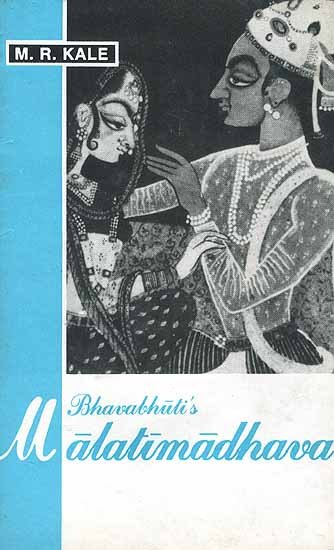Malatimadhava (study)
by Jintu Moni Dutta | 2017 | 52,468 words | ISBN-10: 8120813057 | ISBN-13: 9788120813052
This page relates ‘Selection of Bride and Bridegroom’ from the English study on the Malatimadhava of Bhavabhuti:—A Prakarana type of Drama in ten acts revolving around the love-story of Malati (from Padmāvatī) and Madhava (from Vidarbha). This study discusses the history of its author and the literary, social, religious, historical and cultural aspects of the Malatimadhava.
Part 2.3 - Selection of Bride and Bridegroom
The Ᾱsvalāyana Gṛhyasūtra, in regard to the selection of the bride gives the first place to the examination of the family of the bride. The commentator of this Gṛhyasūtra says that even the bride possesses other good qualities she may not be fit if she does not belong to a good family.[1] In the 7th act of the Mālatīmādhava, Lavaṅgikā says that in every men marry maidens of noble birth and noble born maiden is simple and tender by nature, unoffending and has the power of bashfulness.[2] This saying of Lavaṅgikā signifies that the bride should possess some good qualities and should belong to a good family.
From this it is clear that the people of Bhavabhūti’s time had a custom of examining the bride’s family before the arrangement of marriage. They not only considered the qualities of bride but they also considered the qualities of bridegroom.The Gṛhyasūtras also speak of how to choose a bridegroom and what qualifications make a person a very desirable bridegroom.[3] In this regard the Āśvalāyana Gṛhyasūtra remarks one should give a maiden in marriage to a man endowed with intelligence[4] .
The Āpastamba Gṛhyasūtra speaks the accomplishments of a bridegroom that he must be endowed with good family, a good character, auspicious characteristics, learning and good health.[5] In the 2nd act of the Mālatīmādhava, Kāmandakī made the statement that Mālatī was offered to an unworthy bridegroom.[6] Such a saying was also made by Lavaṅgikā in the same act where she said that the minister did not think about and hesitate in giving his daughter to that bridegroom of ugly aspect and past youth.[7] Thus, it comes to view that for the people of 8th century A.D the selection of the bridegroom was also an equally important matter as the selection of a bride.
Footnotes and references:
[1]:
Ᾱsvalāyana Gṛhyasūtra, I.V.1
[2]:
gṛhe gṛhe puruṣāḥ kulakanyakāḥ samudvahanti / na khalu koapi lajjāparādhīmanaparādhaṃ mugdhasukumārasvabhāvaṃ kulakumārījanaṃ prabhavāmīti vācānalena prajvālayati /
–Mālatīmādhava,VII.p.145
[3]:
Vide, Kane, P.V., op. Cit., p.429
[4]:
Āśvalāyana Gṛhyasūtra, I.5.2
[5]:
Āpastamba Gṛhyasūtra, I. 3.19
[6]:
anucitavarasaṃpradāna, Mālatīmādhava,II.6
